Ray Young Bear
Our Bird Aegis
What holds our bodies together? Yes, there are the biological components, such as the cells, fluids, fibers, but what about the bone-deep stuff, the histories, myths, aches, resolves? In “Our Bird Aegis,” poet Ray Young Bear evokes an adolescent eagle to show how this blend of the visceral, the inherited, and the self-made abides in each of us, no matter our form, wherever we go.
We’re pleased to offer Ray Young Bear’s poem, and invite you to read Pádraig’s weekly Poetry Unbound Substack, read the Poetry Unbound book, or listen back to all our episodes.
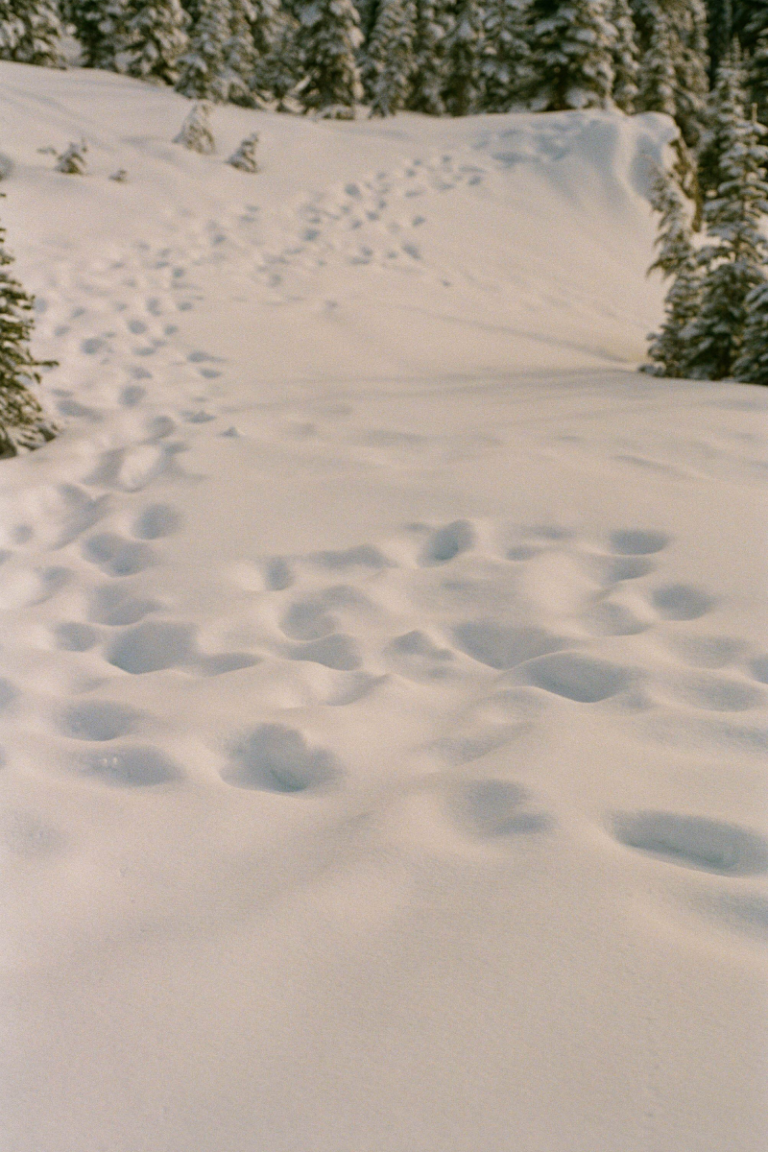
Image by Annisa Hale/ Film processed by Moody's Film Lab, © All Rights Reserved.
Guest
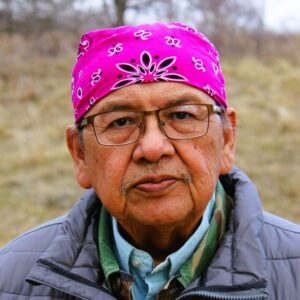
Ray Young Bear is a Meskwaki poet and fiction writer. He is the author of several books of poetry including, The Invisible Musician (Holy Cow Press, 1990), The Rock Island Hiking Club (University of Iowa Press, 2001), and Manifestation Wolverine (Open Road Media, 2015). Young Bear is also the author of two novels, Black Eagle Child: The Facepaint Narratives (University of Iowa Press, 1995) and Remnants of the First Earth (Grove Atlantic, 1996). Image by Stella Lasley-Young Bear.
Transcript
Transcription by Alletta Cooper
Pádraig Ó Tuama: My name is Pádraig Ó Tuama, and I think in the history of the human species, if I can be so audacious as to say it, there’s been this long-standing relationship with knowledge. Of course, we keep on accumulating knowledge and it has helped us and saved us, thank God. But there’s always going to be knowledge we don’t have. There can be this idea that if I had all the knowledge about the specific thing, the future maybe, or what’s going to happen here, if I had that knowledge, I’d know what to do and I’d also know who I am. There’s always going to be ways in which we come up against the limitation of our knowledge and where we’re going to have to use something else to figure out what to do and who I am. And that, perhaps, is one of the ways where poetry comes in.
[music: “Praise the Rain” by Gautam Srikishan]
“Our Bird Aegis” by Ray Young Bear
“An immature black eagle walks assuredly
across a prairie meadow. He pauses in mid-step
with one talon over the wet snow to turn
around and see.
“Imprinted in the tall grass behind him
are the shadows of his tracks,
claws instead of talons, the kind
that belongs to a massive bear.
And he goes by that name:
Ma kwi so ta.
“And so this aegis looms against the last
spring blizzard. We discover he’s concerned
and the white feathers of his spotted hat
flicker, signaling this.
“With outstretched wings he tests the sutures.
Even he is subject to physical wounds and human
tragedy, he tells us.
“The eyes of the Bear-King radiate through
the thick, falling snow. He meditates on the loss
of my younger brother—and by custom
suppresses his emotions.”
[music: “Catching Water” by Gautam Srikishan]
There was something about the unknowing nature of my own experience about this poem that grabbed me when I first read it. I was reading through Ray Young Bear’s work, and even though I knew that almost on every line of this poem there was some kind of symbolism, some kind of story, some kind of reference that I didn’t get at all, I kept on thinking about it. The footprints that seemed to be from an eagle as well as a bear. I thought, what an interesting change. I don’t know what it means, but I was really struck by it. And that peculiar, powerful, unforgettable ending “and by custom / suppresses his emotions.” There’s so much where the character in the poem — is it an eagle? Is it a bear? The way within which the voice is observing this eagle and then suddenly it comes in so personally and specifically with “my younger brother,” towards the end.
I also was moved and touched by the sutures. “With outstretched wings he tests the sutures.” Sutures as a way to stitch somebody up. I found myself thinking: who stitched this eagle up? And then also perhaps more importantly, who caused the injury? “Even he is subject to physical wounds and human / tragedy, he tells us.” So the “even he” made me think that this eagle represents something of greatness, but is subject also to human tragedy.
I did some research in this poem and I found a short essay that Ray Young Bear wrote about the poem and so much about what I’ll say comes from that very short essay. But before we explore some of the things that he says, I suppose it is interesting to think about what moves you. What moves anybody listening to this? What are the associations that come to you from the “immature black eagle” or “the prairie meadow” or “the tall grass” or the “tracks / claws instead of talons” or the “massive bear.” Even the name, the bird aegis. Aegis is some kind of mantle that demonstrates power and protection that people would’ve worn. I think before knowing how it is that these features are used particularly by Ray Young Bear. It can also be insightful to have a bit of a reflection to think: What’s the work that this poem is doing before I know some of the keys that are given to us by the poet?
[music: “Memoriam” by Gautam Srikishan]
Ray Young Bear was born in 1950 and he grew up in the Meskwaki tribal settlement. And he and his wife co-founded the Woodland Song and Dance Troupe of Arts Midwest in 1983. Ray Young Bear writes in that short essay that this particular poem, “Our Bird Aegis,” is based on a fictional tribe called Black Eagle Child. And his own father’s name was Ma ka te Ke ti wa or a Black Eagle. And he says that his father is a Bear Clan leader and that the name had been a source of fascination, but that he hadn’t asked his father what the name meant. It was curious to him that he had this reluctance. And when he did eventually ask his father what the name meant, his father said that he too had a reluctance to ask his own father. So, in a certain sense, this is a poem about a name where the story of the name is not known. Ray Young Bear says that he did learn that a Black Eagle was Bear Clan oriented, and so the poem is a gathering of Bear and Eagle clan deities and that the young eagle looking at his tracks is like him looking back at tracks of him through name, through story, through known, through unknown.
Knowledge perhaps isn’t everything. Perhaps creativity comes into play when knowledge is lacking, and particularly knowledge is lacking where we need some kind of resolve for the here and now, even if you have to make it up through deep engagement with your own identities as well as, though, allowing the power of creativity and mythology to hold you together in what it is that you don’t and probably won’t know.
[music: “Into the Earth” by Gautam Srikishan]
The younger brother is referred to right at the very end of this poem. “He meditates on the loss / of my younger brother—and by custom / suppresses his emotions.” This Bear-King, this eagle, this joint clan deity all together in one is bearing the grief of a lost brother and is suppressing his emotions.
This is the first time when a single personal pronoun comes into the poem, “my younger brother.” It is so powerful how a mythology, an invented mythology that he’s putting across here is also a way within which the actual present is being narrated. He says that to suppress the emotions is a way of bearing what it is you don’t wish the dead to bear, according to Meskwaki custom. Looking for resolve for those who have passed into the grandfather world and that by suppressing the emotions here and now, that’s a way of aiding passage.
I was moved very much by reading about the custom of suppressing your emotion. Of course, lots of people would want to critique that. One of the things that is often said is that the suppressing of the emotions is because we’re not in contact with them. But this is saying that you are in absolute contact with them, and that you’re paying attention to them, and that you have a relationship with these emotions, and that you’re doing something with the emotions that is intended for the benefit of the one who has died.
And I think there’s a lot of people who would probably go, “Actually, yeah, I connect with that.” It gave me pause to think about how it is that I or anybody can judge what it is that grief should look like in a person and who am I to say what it is that holding grief in one way or another is or isn’t doing when it comes to someone who’s been bereaved?
[music: “Ashed to Air” by Gautam Srikishan]
Alongside the symbolism that’s so present in this poem, there’s a way within which the emotion of the eagle and the bear is being represented and the experience is being represented on the body: the assured walk, the pausing mid-step, the concern with the feathers of the spotted hat flickering, and then the wings and the physical wounds. There’s something about seeing what is exactly right in front of you in an observable way that is communicating so much else that’s behind that. That’s what the poem is doing, too, by looking at the physical manifestation of clan deity through eagle and bear by looking at the physicality of this imaginary experience. Something is being communicated of great power through the way that the bodies are being carried and moving through the world.
Longstanding losses of identity and nation and sovereignty are being held in the wounded body of this bird aegis. And also, through the reference to the massive bear and then the direct reference to the younger brother, contemporary griefs are being wrapped into this story too.
[music: “Ashed to Air” by Gautam Srikishan]
“Our Bird Aegis” by Ray Young Bear
“An immature black eagle walks assuredly
across a prairie meadow. He pauses in mid-step
with one talon over the wet snow to turn
around and see.
“Imprinted in the tall grass behind him
are the shadows of his tracks,
claws instead of talons, the kind
that belongs to a massive bear.
And he goes by that name:
Ma kwi so ta.
“And so this aegis looms against the last
spring blizzard. We discover he’s concerned
and the white feathers of his spotted hat
flicker, signaling this.
“With outstretched wings he tests the sutures.
Even he is subject to physical wounds and human
tragedy, he tells us.
“The eyes of the Bear-King radiate through
the thick, falling snow. He meditates on the loss
of my younger brother—and by custom
suppresses his emotions.”
[music: “Praise the Rain” by Gautam Srikishan]
Chris Heagle: “Our Bird Aegis” comes from Ray Young Bear’s book Manifestation Wolverine. Thank you to Ray who gave us permission to use his poem. Read it on our website at onbeing.org.
[music: “Praise the Rain” by Gautam Srikishan]
Poetry Unbound is: Gautam Srikishan, Eddie Gonzalez, Lilian Vo, Lucas Johnson, Amy Chatelaine, Kayla Edwards, Annisa Hale, and me, Chris Heagle.
Our music is composed and provided by Gautam Srikishan and Blue Dot Sessions.
This podcast is produced by On Being Studios, which is located on Dakota land. Open your world to poetry with us by subscribing to our Substack newsletter. You may also enjoy Pádraig’s book, Poetry Unbound: Fifty Poems to Open Your World. For links and to find out more visit poetryunbound.org.
Books & Music
Recommended Reading
The On Being Project is an affiliate partner of Bookshop.org and Amazon.com. Any earnings we receive through these affiliate partnerships go into directly supporting The On Being Project.






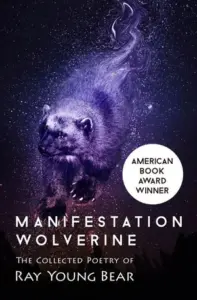

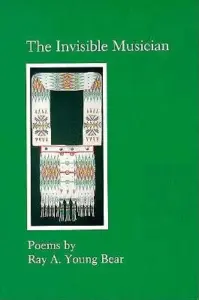
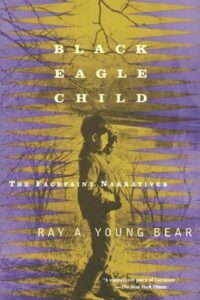

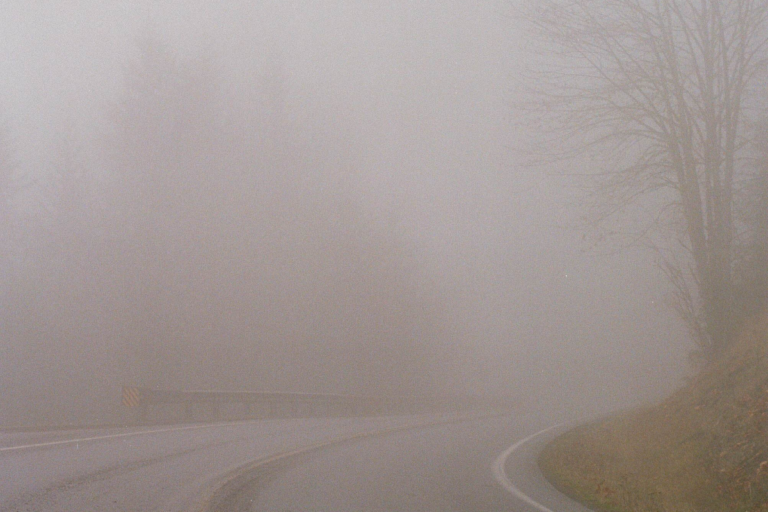
Reflections